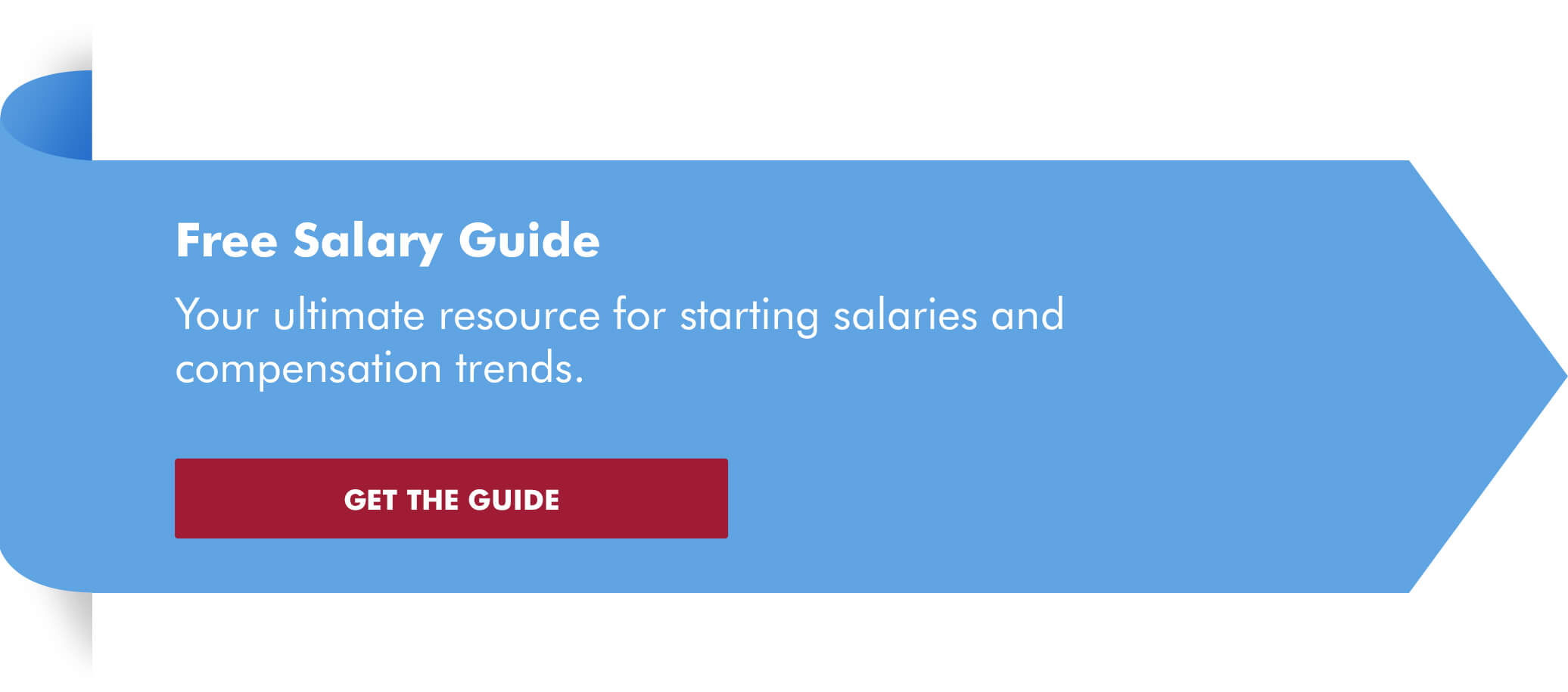If you’re trying to hire a web designer in the current competitive market, you know how challenging it can be. As companies continue to invest in their digital footprint, demand for web designers has increased.
“Demand is relatively high,” says Sarah Bass, The Creative Group division director in Cleveland, Ohio. “Although most clients are looking for well-rounded digital designers and not just web designers.”
Eric Kimble, branch manager in Denver, Colo., agrees: “There’s very high demand here, but we’re not hearing the title ‘web designer’ as much.” Kimble says clients instead ask for UI or UX designers, visual designers, interactive designers or digital designers.
Given the high demand and potential broadening of the role, how do you hire a web designer?
Here are some tips:
Define what you need
It’s important to define the parameters of the job you’re hiring a web designer for so you can create a focused job description — that way, you’ll attract the best qualified candidates.
Kimble suggests considering the goal the organization has for the position: Is it to help create a product? Is it to create brand-related deliverables? Is the job strategic in nature? Is leadership required? Your job description and the type of web designer you need will depend on those answers.
Elizabeth Ledbetter, vice president and metro market manager in St. Louis, Mo., adds: “The supervisor the new hire will be reporting to is the one who should identify key details for the role and job description, as well as evaluate candidates and choose who joins their team.”
Hire a web designer with the right skills
Once you have a clear idea of everything the position will entail, focus on the skills necessary to be successful in the role.
Kimble suggests seeking someone with a strong portfolio who can demonstrate visual mastery of their craft. Consider what qualities you require for your project and review each candidate’s resume, asking questions such as: Does the person have the right industry and technical knowledge? Who are their past companies and clients? Does their resume demonstrate consistency, or is this person bouncing from job to job? If it is just a contract or project, does the candidate’s experience demonstrate an ability to start and finish a contract or project on time and on budget?
Bass says many of her clients look to hire a web designer proficient with Adobe Creative Suite, HTML and CSS. She adds that they also need people who are comfortable with responsive design and have a good understanding of UX best practices.
Bass recently placed what she considers a top candidate: “There’s a particular digital designer that my clients always like because she has a diverse background in both agency and client work, a clean portfolio and is as flexible as she can be in meeting client needs.”
Ledbetter says some top skills that her clients seek when they hire a web designer include having a demonstrated understanding of internet design issues, including browser usability, cross-platform compatibility, color and quick loading of images. They also need fluency in graphic illustration and user interface design, usability principles and mobile strategies, as well as in-depth knowledge of design software and authoring tools such as Illustrator, Photoshop, Dreamweaver, HTML5 and CSS.
She adds that ideal candidates for a web designer role have a strong understanding of design principles (space, color and typography), UX knowledge or experience, a diverse portfolio and a variety of digital exposure (social media, banners, ads, websites and mobile).
“The best candidates have incredible portfolios and have had a variety of clients, so they can adapt their design style to a client or company,” says Ledbetter.
And don't forget soft skills: Bass says the best web designers she places are easy to work with, possess strong communication skills and have nice personalities. Kimble concurs, describing his best web designer candidate as “extremely likable, a good person, humble and someone you like being around.”
Ask the right questions
Once you understand the skills necessary for the job and have created a clear job description, you’ll want to develop some questions to ask every candidate — and for consistency, compare their answers. Here are some examples of questions you can ask a web designer:
- What industries have you worked in?
- Do you have in-house or agency experience?
- Have you worked on a similar project (to the one you’re hiring for)?
- Have you used (Illustrator, Photoshop, etc.), and do you have examples of work using it?
- What do you do when you disagree with a colleague about how to approach a project?
- Describe a challenging work situation or project and how you handled it.
- What project are you most proud of and why?
- How do you handle criticism?
- What is your creative process like?
Next, when reviewing a web designer candidate’s portfolio, you can ask: How were you involved in the project, concept and execution? Is this your work alone or did you collaborate with colleagues?
Get compensation right
It’s important to offer a competitive salary when hiring a web designer because they’re in high demand. Use the Salary Guide from Robert Half to find salary projections for web designers in the United States. Web designers who have taken UX, UI or web development courses or have certifications in those areas could receive more, depending on their location and level of expertise.
Where to find candidates
Ledbetter says some of her best candidates come from referrals and recruiter networks. Attending local networking events and AIGA events are also great ways to find strong talent.
“Because supply is lower than demand right now, we cast a wide net and find candidates through many different channels,” says Kimble. These might include industry job and candidate boards, college campus events and even networking at nontraditional places, like cookouts, elevators and happy hours.
Because recruiters are so well-connected and their network is vast, using an employment agency is also a great way to hire a web designer.
Missing out on a candidate
Ledbetter says she sees clients missing out on qualified candidates daily: “In this job market, if you like someone you must make a move. Strong candidates have multiple job offers, so you need to not only move fast, but offer a competitive salary, perks and opportunities for career growth.”
Kimble also sees clients miss out on web designer candidates regularly, often because a firm’s vetting process is too slow.
Bass agrees: “Despite the current market conditions, we still run into clients who insist on adhering to their own process.” She says clients either wait too long to provide feedback on a candidate, or they bring in a candidate and want to interview them multiple times before making a decision. The candidate often accepts another job before the interviews are concluded. In the majority of those situations, the client loses the candidate they were most interested in hiring.








